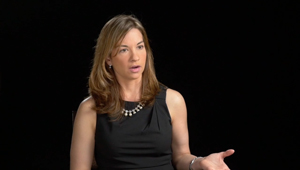Professional Roles and Responsibilities
Video Library published on January 10, 2019 in Clinical Pearls, Professional Roles and Responsibilities, Role of the Navigator
Dr Morganna Freeman recommends that navigators develop a good triage system to effectively manage adverse events.
Articles & White Papers published on August 9, 2016 in Professional Roles and Responsibilities, Role of the Navigator
Medical oncologist Richard J. LoCicero, MD, believes navigators fill in the patient care blanks offering their value as coordinators, shoulders of support, and negotiators.
Articles & White Papers published on July 17, 2013 in Professional Roles and Responsibilities, Role of the Navigator
Healthcare continues to change with a focus on prevention and outpatient care versus the long-standing way of reactive, inpatient acute care. There continues to be a role for inpatient care in oncology, but payer sources will reward the limitation of hospital visits in the future.
Articles & White Papers published on May 23, 2013 in Professional Roles and Responsibilities, Role of the Navigator
One of the dilemmas navigators experience—being able to plan their time well, as well as to explain to others in designated blocks of time how their time is allocated on a given day or throughout a given week. Some time measurement is easy—3 hours spent conducting a community outreach event, for example.
Articles & White Papers published on May 16, 2011 in Professional Roles and Responsibilities, Role of the Navigator
After a recent navigation presentation, a participant approached me and commented, “Thank you, now I understand what our navigator does in her role.” The comment caused me to reflect...could that be the case where many of us work? Do people in our healthcare system know what we do?
Articles & White Papers published on January 27, 2011 in Professional Roles and Responsibilities, Role of the Navigator
When working with systems that are contemplating a navigation program or when navigators visit our site because they have been hired to navigate but can not seem to find their niche, this is a question everyone asks at the beginning. It is stressed throughout the navigation world that there is not a standardized navigation program that can fit everywhere.
Articles & White Papers published on November 11, 2010 in Professional Roles and Responsibilities, Role of the Navigator
In the spring of 2010, the Academy of Oncology Nurse Navigators (AONN) was invited to participate in the National Patient Navigator Leadership Summit held in Atlanta, Georgia.
Results 1 - 7 of 7
Thank You to Our Corporate Sponsors and Alliance Partners!

Major Corporate Sponsor

Patron Corporate Sponsor

Patron Corporate Sponsor

Patron Corporate Sponsor

Industry Relations
Council Member

Industry Relations
Council Member

Industry Relations
Council Member

National Alliance Partner

National Alliance Partner

National Alliance Partner

National Alliance Partner

National Alliance Partner

National Alliance Partner
Privacy Notice | Terms of Use
© 2009- DBA AONN+ Academy of Oncology Nurse & Patient Navigators® | PO Box 357387, Gainesville, FL 32635-7387 |
AONN+ DBA AONN+ is a 501(c)(6) organization under federal tax guidelines. AONN+ Foundation for Learning, Inc. a 501(c)(3) organization under federal tax guidelines.
AONN+ Advantage, LLC, a wholly owned subsidiary of AONN+.



